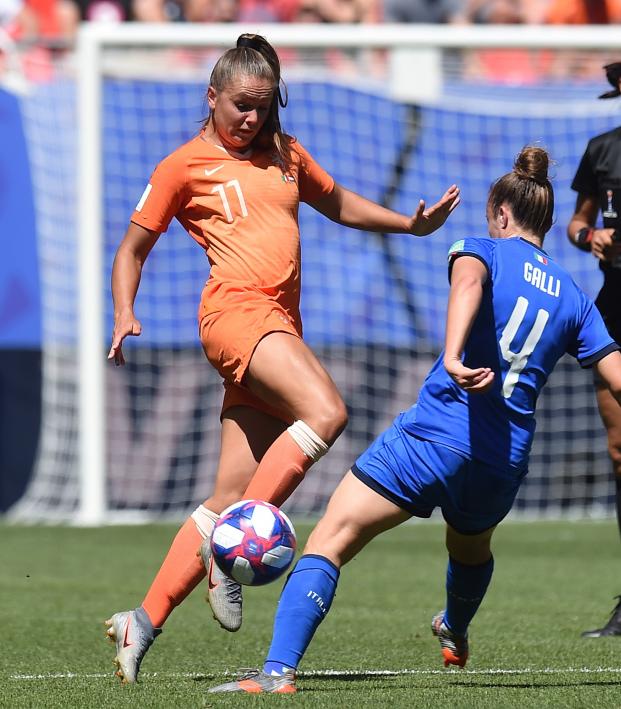(925) 589-07-14
(925) 589-07-15


24th Январь , 2020
At the start of the eighteenth century there have been roughly 600 individuals of Dutch birth or descent residing in South Africa, and across the end of Dutch rule in 1806 the quantity had reached 13,360. In the case of Belgium, there may be the added influence of nationalism as the Dutch language and tradition have been oppressed by the francophone authorities. On a smaller scale cultural pluriformity may also be found; be it in local structure or (perceived) character. Prior to the arrival of Christianity, the ancestors of the Dutch adhered to a form of Germanic paganism augmented with various Celtic components. At the start of the 6th century, the primary (Hiberno-Scottish) missionaries arrived.
In South Africa, most Afrikaners and Coloureds (Cape Coloureds) hint their ancestry to the Netherlands, being descendants of Dutch colonizers who established the Dutch Cape Colony. They communicate Afrikaans as their native language, which is a mutually intelligible sister language of Dutch that developed within the Colony.
This is partly brought on by the popular stereotypes within the Netherlands in addition to Flanders, that are mostly based on the «cultural extremes» of both Northern and Southern culture, including in spiritual identification. Though these stereotypes are likely to ignore the transitional space formed by the Southern provinces of the Netherlands and most Northern reaches of Belgium, resulting in overgeneralizations. This self-perceived split between Flemings and Dutch, regardless of the frequent language, could also be compared to how Austrians don’t contemplate themselves to be Germans, regardless of the similarities they share with southern Germans similar to Bavarians. In both cases, the Catholic Austrians and Flemish do not see themselves as sharing the basically Protestant-primarily based identities of their northern counterparts. 12 May. 2009;The northern Franks retained their Germanic language (which became fashionable Dutch), whereas the Franks shifting south rapidly adopted the language of the culturally dominant Romanized Gauls, the language that might become French.
In Dutch this type of surname almost all the time contains one or several tussenvoegsels, primarily van, van de and variants. Many emigrants eliminated the spacing, leading https://yourmailorderbride.com/dutch-women/ to derived names for well known people like Cornelius Vanderbilt. While «van» denotes «of», Dutch surnames are typically associated with the higher class of society or aristocracy (cf. William of Orange).
Dutch, the official language, is spoken by round ninety% of the inhabitants. Around 350,000 folks, or 2.2% of the population, converse Frisian as their first language, mainly within the northern province of Friesland, where it’s recognised as an official language. Turkish and Arabic are also spoken within the Netherlands, every by over zero.6% of the inhabitants. The Dutch are the people who stay in the Netherlands, or those that come from the Netherlands.

Hence at present many Dutch individuals are named after ancestors residing in the early nineteenth century when civil registry was launched to the Low Countries. Dutch was spoken by some settlers in the United States as a local language from the arrival of the first everlasting Dutch settlers in 1615, surviving in isolated ethnic pockets till about 1900, when it ceased to be spoken except by first technology Dutch immigrants.

These dialects are often grouped into six major classes; Hollandic, West-Flemish/Zealandic, East Flemish, Brabantic, Limburgish and Dutch Saxon. Of these dialects, Hollandic and Dutch Saxon are solely spoken by Northerners. Brabantic, East Flemish, West-Flemish/Zealandic and Limburgish are cross border dialects on this respect. Lastly, the dialectal state of affairs is characterised by the main distinction between ‘Hard G’ and ‘Soft G’ talking areas (see additionally Dutch phonology).
Still, even more people in the Netherlands who were not born there can be referred to as «Dutch». According to some definitions, also people who were born within the Netherlands, but whose parents were not, cannot be referred to as Dutch. This definition leaves almost 20% of the whole Dutch inhabitants to be ‘foreign’.
Some vrijburgers ultimately turned to cattle ranching as trekboers, creating their own distinct sub-culture centered around a semi-nomadic lifestyle and isolated patriarchal communities. By the eighteenth century there had emerged a brand new folks in Africa who identified as «Afrikaners», quite than Dutchmen, after the land they’d completely adopted. Since Company workers proved inept farmers, tracts of land were granted to married Dutch residents who undertook to spend a minimum of twenty years in South Africa. Upon the revocation of the Edict of Nantes in 1685, they were joined by French Huguenots fleeing non secular persecution at home, who interspersed among the authentic freemen. Between 1685 and 1707 the Company additionally extended free passage to any Dutch families wishing to resettle on the Cape.
The basic situation described above is applicable to most if not all modern European ethnic teams with origins among the many Germanic tribes, such as the Frisians, Germans, English and the North-Germanic (Scandinavian) peoples. Eventually, in 358, the Salian Franks, one of the three main subdivisions among the Frankish alliance settled the world’s Southern lands as foederati; Roman allies in control of border protection.
Encyclopædia Britannica Online; entry ‘History of the Low Countries’. 10 May. 2009;During the sixth century, Salian Franks had settled within the region between the Loire River in present-day France and the Coal Forest within the south of present-day Belgium. From the late 6th century, Ripuarian Franks pushed from the Rhineland westward to the Schelde.
One can rely all folks dwelling within the Netherlands as Dutch, however many aren’t. This is because many individuals who stay in The Netherlands were not born there. About 15.5 million folks within the Netherlands actually have the Dutch nationality. About 1 million individuals living within the Netherlands do not have the Dutch nationality. To make things extra confusing, individuals who live in the other parts of the Kingdom of the Netherlands (together with Aruba, Curaçao, Sint Maarten, and the Caribbean Netherlands) also have Dutch nationality.

) or the Dutch are a Germanic ethnic group and nation native to the Netherlands. Dutch people and their descendants are found in migrant communities worldwide, notably in Aruba, Suriname, Guyana, Curaçao, Argentina, Brazil, Canada, Australia, South Africa, New Zealand, and the United States. The Low Countries had been located around the border of France and the Holy Roman Empire, forming part of their respective peripheries, and the various territories of which they consisted had turn out to be virtually autonomous by the 13th century.